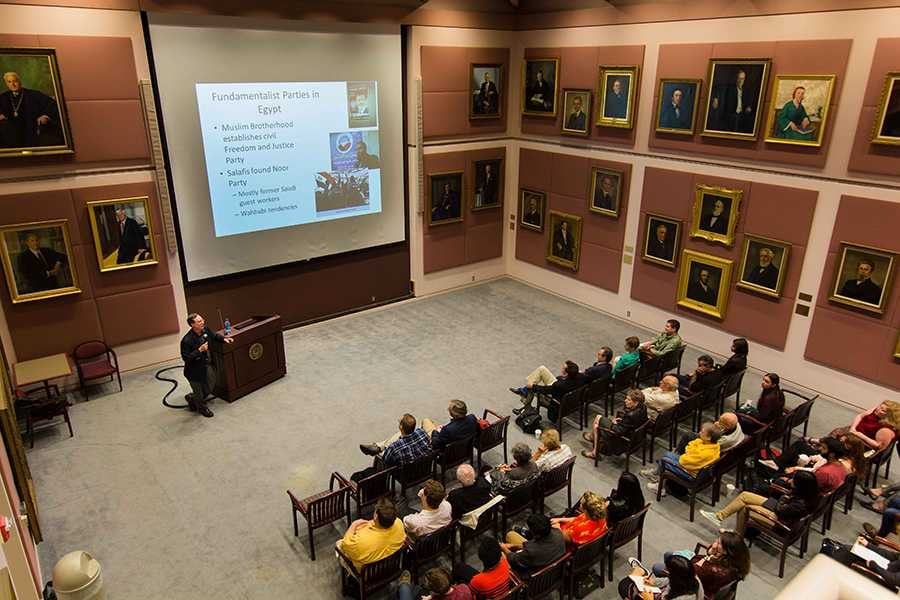Middle East scholar talks about role of youth in the Arab Spring
An audience of about 65 members of the Northwestern community listen to a talk by Juan Cole, an NU alumnus and authority on the Arab world. Cole discussed the importance of youth in recent events in Middle Eastern countries.
October 1, 2014
An author and blogger who specializes in the Middle East spoke Wednesday night about the role of youth in modern Islamic movements.
Hosted by the Roberta Buffett Center, Juan Cole (Weinberg ’75), a University of Michigan history professor, delivered his talk at Hardin Hall to a crowd of about 65 students, graduates and faculty members.
“It’s all about education, keeping track of the world around you and being a more informed global citizen,” said Laura Hayes, communication coordinator at the Buffett Center. “This topic has a lot of relevance in this day and age, and Cole has a lot to offer academically.”
Cole, a frequent guest on television shows and prominent expert on the Arab world, promoted his recently released book, “The New Arabs,” at the talk. Both the book and his talk compared the recent uprisings in Tunisia, Egypt and Libya, and addressed the importance of youth in orchestrating these revolutions.
“The book is about a generation, it’s about youth movements and organizations in the contemporary Arab world,” Cole said. “One of the things that interested me about them is that they reminded me in some ways very much of undergraduates I knew here [at NU] in the 1970s.”
Cole emphasized that Arab youth are distinct from older generations and are more literate, urban and media savvy. He said this difference allowed the younger generation to network widely in order to carry out revolutions against dictatorial regimes.
“2011 was the work of the shabab, the youth,” Cole said. “In our press we talk about the Libyan rebels or Syrian rebels, but they say the youth rebels.”
Alice Liu (Weinberg ’13), a former Daily staffer, said she has always been interested in social justice issues and came back to NU to hear Cole speak.
“As a millennial, I think it is important to be involved with your community and raise issues,” Liu said. “In a place like the Middle East, where there are limited rights, it is important to hear what the youth are doing and saying.”
Cole also commented on the current states of affairs in Middle Eastern countries, comparing the abolishment of internet censorship and relative success of the uprisings in Tunisia to the much more difficult transition in Egypt.
“If you see these revolutions of 2011 as democratic openings, then of course you will be disappointed,” Cole said. “But if you see them as a generational change in which the 20-somethings have now put down a marker on a stake in the future of their countries … If you see this as the first flowering of a new generation of Arab politics, then the story is by no means over.”
Email: [email protected]
Twitter: @amulyayala


